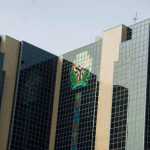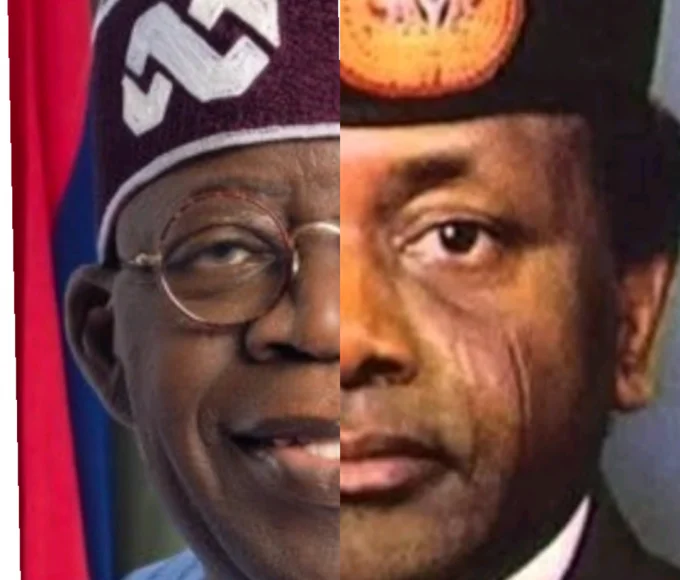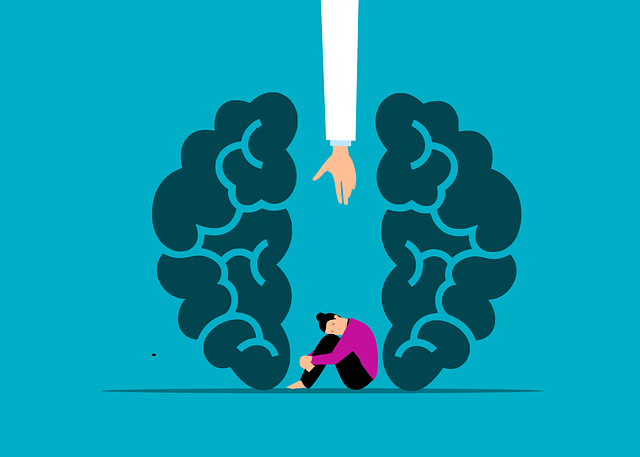
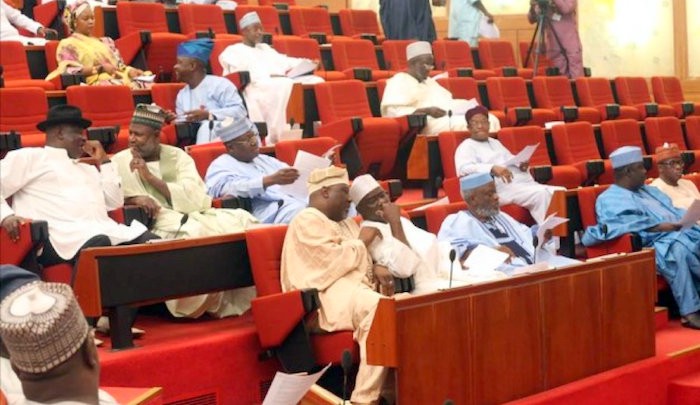
Anything you see, take it like that
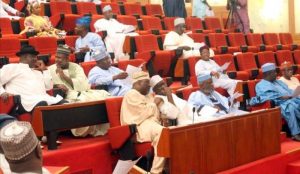
On paper, Nigeria is a democracy. In practice, that is not the case. Nigeria has figured out a system of government that contradicts democracy — the “Agbada System.“ It works for a select few, not the masses. This system came into being after many years of military dictatorship. Exactly how and why it was adopted by the political class is debatable. Regardless, anyone with an iota of intelligence knows that it is not sustainable. The “Agbada” system has failed, is failing, and is certain to inhibit development.
The Agbada system of government mimics democracy – it is of the people, for the people, by the people, and yet it is NOT for the people or by the people. Before you get confused, please allow me to explain.
The people voted into power are Nigerians so they are ‘of the people’. However, their actions after being voted into power are not in the interests of Nigeria or Nigerians. There always seems to be a disconnect between leadership and the people. Policies, actions, legislation, and more are crafted to favor the elite or a select group, as against being people-oriented. In some cases, they work in complete ignorance of current realities. On this note — the ‘for the people’ clause in democracy doesn’t hold water.
Elections as we know are a core feature of democracy. It is done to reflect the choice of a majority by way of voting. In places where the rule of law and human lives are actually a thing, elections are simple acts of participating in politics. In the Agbada system, elections are a do-or-die affair. They are marred with violence, ballot box snatching, rigging, and vote buying. The winners in some cases are choices of political godfathers and/or power brokers. This contrasts with the ‘by the people’ clause in democracy.
You may be curious as to the origin of this system. What is Agbada? Why does Nigeria embrace this system? Your curiosity will be addressed shortly. It may not be satisfactory, and you may see gaps in the reasoning, but that is a small price to pay for trying to understand Nigeria(ns).
What is Agbada?
Merriam-Webster defines Agbada as a loose-fitting robe worn by men in Nigeria.
Agbada is the top choice of clothing for the Nigerian political class that is dominated by men. They wear it the same way people on Capitol Hill wear suits. The President, legislators, governors, and bureaucrats, are loyal disciples of this dress code for official and unofficial purposes. If you are privileged to visit or work in government buildings, especially in the capital Abuja, you need no explanation about this phenomenon.
How does Agbada translate into Governance?
Many names could have been coined for this anomaly of the governance system Nigeria has adopted, but this will suffice. Since draconian laws/executive orders, anti-people policies that disregard democratic ideals, are handiworks of politicians/leaders mostly clad in Agbada, on taxpayers’ money, in government offices, there is a unanimous decision from the Author’s heart, head, and conscience that the name — “Agbada System of Government” will pass the smell test. It fits.
Who are the Players?
Let’s take a stroll down memory lane, from the 1966 coup to the 1999 transition to democracy. Nigeria has always been plagued with leadership problems. The same players from that era still jostle for power to this day. There is no better example than the current president. While citizens are divided along ethnic and religious lines, these players remain united in one thing — being at the top — in charge. They pander to and echo whatever aligns with their ambition. At the moment, Nigeria is run on propaganda, vibes, and photo ops which happen to be 3 core features of the Agbada system.
Propaganda
A very important feature of this system is propaganda. Without adequate propaganda, the masses are not aware of whatever ‘work’ the government is currently executing. The combination of traditional media, social media, and the occasional poverty alleviation schemes are the hallmarks of governance. Gaslighting, propagating “fact-checked” lies, arbitrary arrests, and intimidation are the order of the day. Relating this to 2024, anyone can see how heavily propaganda is deployed by Aso Rock, non-performing state governors, heads of government agencies et al, to counter valid opinions and criticisms of the government. Anything not pro-government is anti-Nigeria. It is a faith-like approach to governance that says:
- We are working even though you do not see the process or results, but it is in your best interest to accept that we are.
Worry not, this is how the system is designed to operate.
Vibes
A government official can wake up on the wrong side of the bed and completely change policies already ratified without respect for processes or the rule of law. The same goes for anti-people bills that are debated without shame at various legislative assemblies. The Agbada system is funny like that. It is common to see arms and parastatal of government acting out the instructions of their Heads based on personal beliefs that are not covered by law or in the public interest. It is all vibes, no substance, and no vision or framework in place to drive policy. Below are notable mentions;
- CBN’s arbitrary crypto ban without duly consulting stakeholders on the economic downside.
- Security agencies detaining citizens without cause, based on word-of-mouth or body language.
- Empty rhetoric from government reps. The Bayo Onanugas, Jubril Gawats, Bashir Ahmads, Joe Igbokwes etc.
Photo Ops
Pictures are powerful. They tell stories. Hence, it is very easy to sway objectivity – a case of ‘seeing is believing’. You cannot separate Nigerian politicians from the camera. They appear in pictures like they’ve figured out governance. With the quality and quantity of photographs in circulation, one could argue that photography pays better than most aide jobs in this system. They churn out pictures of one ‘ultra-modern’ project commissioning to lazy committee meetings. The modus operandi never changes.
The depressing part is that providing infrastructure, amenities, jobs, and people-oriented projects is supposed to be a norm but somehow, the political class feels the need to advertise every ‘milestone’ in JPEGs, with many never reaching completion. A closer look almost always shows that ‘seeing is deceiving’. An unwritten rule goes thus:
- Any opportunity to perform or pose for the camera MUST not be missed. This is how to show we are working.
Now that you are aware of this system, what are your thoughts? You cannot say it works for all when almost every metric for governance is below the bar. Things are only going to worsen further. It’s the 21st century and Nigeria acts like she wants to be in the stone age. This is what the Agbada system allows — mediocrity. Democracy is in the bin, at least for now. Fingers crossed.
Author’s Note: This is an original thought based on trends in Nigeria’s political space. Hopefully, it’s not still valid in 2035. We’ll see.
About The Author
Related Articles
Rivers: Tinubu’s Hidden Obsession
You cannot tell who a man is until he is in power...
ByJohnson AkorApril 14, 2025Mental Health Matters: Building a Foundation for Wellness and Growth
Writing has made me reflect on the power of sharing knowledge—sparking conversations...
ByOluwaseun DawoduDecember 13, 2024Paris 2024: Tobi Amusan And The Olympic Dream
The long-awaited Olympic year is finally here. The event, scheduled in Paris...
ByJunaid OlaitanJuly 24, 2024Beyond Brain Drain: Nigeria’s Healthcare Workforce Crisis
On November 29, 2023, no fewer than five wards, comprising about 150...
ByGrace Akan-FrancisMarch 11, 2024






